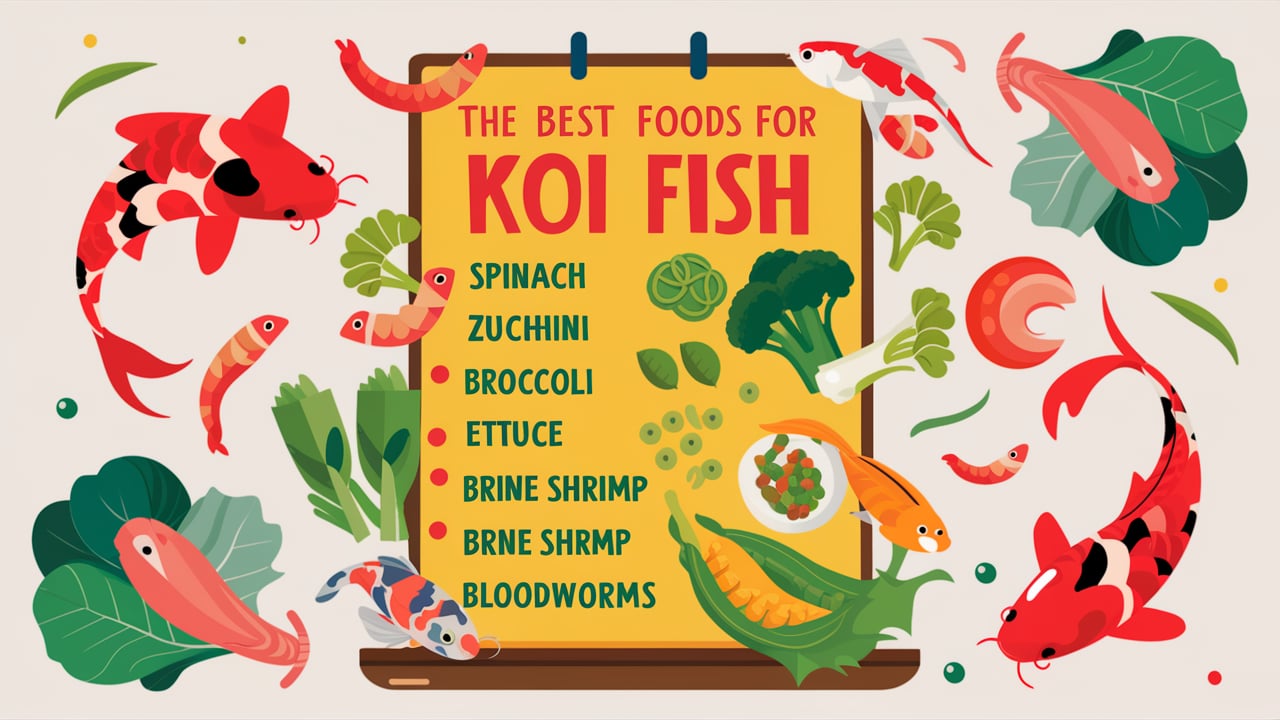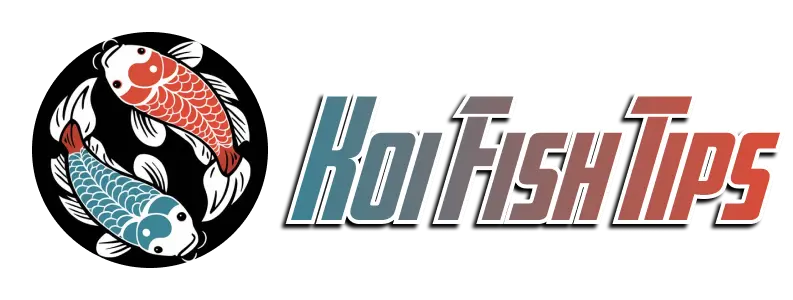Koi fish, with their vibrant colors and elegant movements, are a captivating addition to any water garden. Their beauty and grace are a testament to their well-being, and ensuring their health is paramount to any koi enthusiast. A key aspect of their care is providing them with the right nutrition. This guide, Koi Fish Tips will explore the world of koi nutrition, revealing the best food for koi fish to keep your aquatic jewels thriving.
Understanding the Nutritional Needs of Koi Fish
Just like any traveler embarking on a journey, koi require the right provisions to fuel their adventures. Their dietary needs are diverse, encompassing essential nutrients that contribute to their growth, vitality, and overall well-being.
- Protein: Koi are omnivores, and protein is essential for their muscle development, tissue repair, and overall growth.
- Fat: Fats provide energy and aid in the absorption of vital vitamins.
- Carbohydrates: While koi can digest carbohydrates, they are not their primary energy source.
- Vitamins: Vitamins are crucial for a healthy immune system, growth, and various bodily functions.
- Minerals: Minerals are essential for bone development, muscle function, and other essential processes.
The Best Food for Koi Fish
Feeding your koi is like curating a culinary experience for them. Here’s a breakdown of the best food options to ensure their nutritional needs are met:
Koi Pellets: A Convenient and Nutritious Choice
Koi pellets are like the “packed lunch” of the koi world, offering a convenient and balanced meal. They are readily available and come in various sizes and formulas to cater to different ages and sizes of koi.
Here’s why pellets are a great choice:
- Nutrient-Rich: High-quality pellets are formulated with the right balance of protein, fat, carbohydrates, vitamins, and minerals.
- Easy to Digest: Pellets are designed to be easily digestible, minimizing digestive issues.
- Convenient: Pellets are easy to store and dispense, making feeding a breeze.
Tips for Choosing Koi Pellets:
- Look for high-quality pellets from reputable brands.
- Choose pellets that are appropriate for the age and size of your koi.
- Consider pellets with added vitamins and minerals for optimal nutrition.

Koi Flakes: A Classic Choice for Koi
Koi flakes are like the “buffet” option for koi, offering a variety of flavors and textures. They are a popular choice for many koi keepers and are readily available at pet stores.
Here’s what makes flakes a good option:
- Variety: Flakes come in different flavors and formulas to cater to diverse tastes.
- Easy to Dispense: Flakes are easy to sprinkle on the water surface, making feeding a simple process.
Tips for Choosing Koi Flakes:
- Choose flakes that are high in protein and low in carbohydrates.
- Look for flakes with added vitamins and minerals.
- Avoid flakes that are heavily processed or contain artificial colors and flavors.
Live Foods: A Natural and Nutritious Treat
Live foods are like the “gourmet experience” for koi, offering a natural and nutritious treat. They provide a rich source of protein and other essential nutrients, promoting healthy growth and development.
Here are some popular live food options:
- Brine Shrimp: A staple live food for koi, brine shrimp are a rich source of protein and other nutrients.
- Daphnia: Daphnia are small crustaceans that are a good source of protein and essential fatty acids.
- Mosquito Larvae: Mosquito larvae are a natural food source for koi and can help control mosquito populations in your pond.
Tips for Feeding Live Foods:
- Introduce live foods gradually to avoid overwhelming your koi’s digestive system.
- Ensure that the live foods are free of parasites and diseases.
- Offer live foods in moderation as a supplement to their regular diet.
Vegetables: A Healthy Supplement
Vegetables are like the “side dish” for koi, offering a healthy and nutritious supplement to their diet. They are a good source of vitamins and minerals and can help keep your koi’s digestive system functioning properly.
Here are some vegetables that koi can enjoy:
- Peas: Peas are a good source of protein and fiber.
- Spinach: Spinach is rich in vitamins and minerals.
- Zucchini: Zucchini is a low-calorie vegetable that is easy for koi to digest.
Tips for Feeding Vegetables:
- Offer vegetables in moderation as a supplement to their regular diet.
- Blanch vegetables before feeding them to your koi to make them easier to digest.
- Avoid feeding vegetables that are high in oxalates, such as spinach and kale.
What to Avoid Feeding Koi: A Culinary No-No List
Just like any traveler needs to be cautious about what they consume, koi also have certain foods they should avoid. Here’s a list of culinary no-nos for your aquatic companions:
- Bread: Bread lacks the essential nutrients koi need and can lead to digestive problems and water quality issues.
- Processed Foods: Avoid feeding koi processed foods like chips, crackers, and cookies. They lack nutritional value and can cause digestive upset.
- Meat: While koi are omnivores, they cannot digest meat efficiently. Feeding them meat can lead to digestive problems and even death.
- Dairy Products: Dairy products like milk, cheese, and yogurt are not suitable for koi. They can cause digestive issues and are not easily processed by their bodies.
- Fruit Seeds and Pits: Fruit seeds and pits can be a choking hazard for koi and may contain toxins that are harmful to them.
- Avocado: Avocado is toxic to koi and can cause severe health problems, even death.
- Chocolate: Chocolate is toxic to koi and should never be given to them.
- Alcohol: Alcohol is toxic to koi and can cause serious health problems.
- Salt: Excess salt can be harmful to koi and can disrupt their internal balance.
Conclusion
Feeding your koi the right food is essential for their health and well-being. By providing them with a balanced diet of high-quality koi food, live foods, and occasional vegetables, you can ensure their growth, vitality, and enjoyment of their aquatic adventures. Remember to consult with a veterinarian specializing in fish for any questions or concerns about your koi’s health.

Bài viết liên quan
Baby Koi Fish – A Journey Of Growth And Beauty
Imagine a tiny, shimmering speck of color darting through the water, a miniature version of [...]
Jul
Do Koi Fish Eat Bread? The Truth About Feeding Your Fish
Do koi fish eat bread? Is it a suitable food for koi? This comprehensive guide, [...]
Jul
Do Koi Fish Hibernate? Understanding Their Winter Behavior
As the seasons change and temperatures drop, many koi enthusiasts wonder: Do koi fish hibernate? [...]
Jul